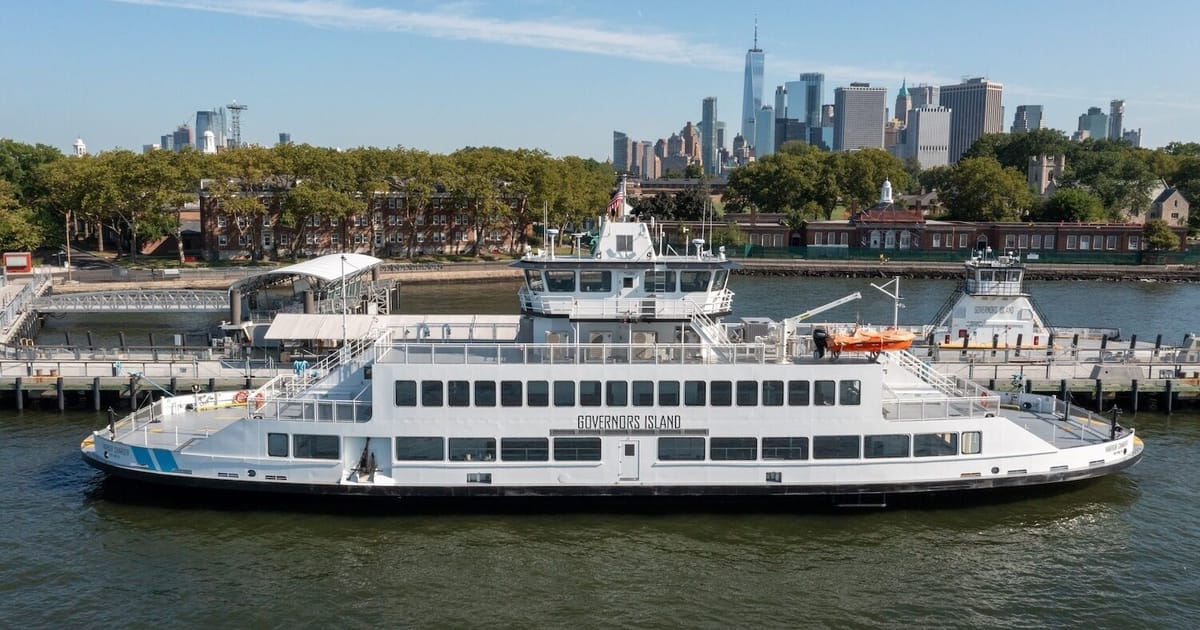Nationwide, many of the nearly 620 ferries plying waterways rely on decades-old, inefficient diesel engines, making them some of the largest emitters among commercial harbor craft. The vessels also typically operate around densely populated communities, exposing people to health-harming pollutants such as particulate matter and nitrogen oxide emissions.
“Diesel ferries are an important part of our transportation system, but continuing to spew the fumes that diesel leaves and … burn that fuel in the middle of our cities does not make any sense,” New York state Sen. Brian Kavanagh (D) said from the gently humming Harbor Charger. Skyscrapers towered in the distance as helicopters and seaplanes soared noisily overhead.
The newly built Harbor Charger is the second hybrid-electric ferry to launch in the U.S. this summer. In July, Washington State Ferries began running the renovated Wenatchee — a 27-year-old diesel ferry that underwent a $96 million conversion to become a Prius of the seas. The giant ferry can carry nearly 2,500 passengers and over 200 vehicles on a route between Seattle and Bainbridge Island.
Siemens Energy outfitted both ferries with its hybrid technology. The German manufacturer recently equipped a new hybrid-electric ferry in Galveston, Texas, and is in the process of retrofitting another vessel there. It’s also working to deliver two similar vessels to Louisiana’s department of transportation later this year, said Ed Schwarz, the company’s head of marine solutions sales in North America.
“We really think that this is the direction the industry is going,” Schwarz said in an interview as the Harbor Charger cruised past the Statue of Liberty.
For now, the industry will have to chart that course without key federal funding. The GOP megalaw that President Donald Trump signed last month rescinds millions of dollars in unobligated grant money from the 2022 Inflation Reduction Act to help local governments and others slash diesel pollution from ports by modernizing and electrifying equipment.
New York City itself received a $7.5 million federal grant in 2023 to fund the installation of Harbor Charger’s shoreside charging infrastructure, which is currently in the design phase. U.S. Rep. Dan Goldman (D-NY), who helped to secure the grant, lamented the loss of federal subsidies for projects like this one. “It is a very fraught time for our cleantech and our renewable energy,” he said during the launch ceremony.
Still, Goldman added, Harbor Charger “is such a critical example of what the future can be and will be.”
